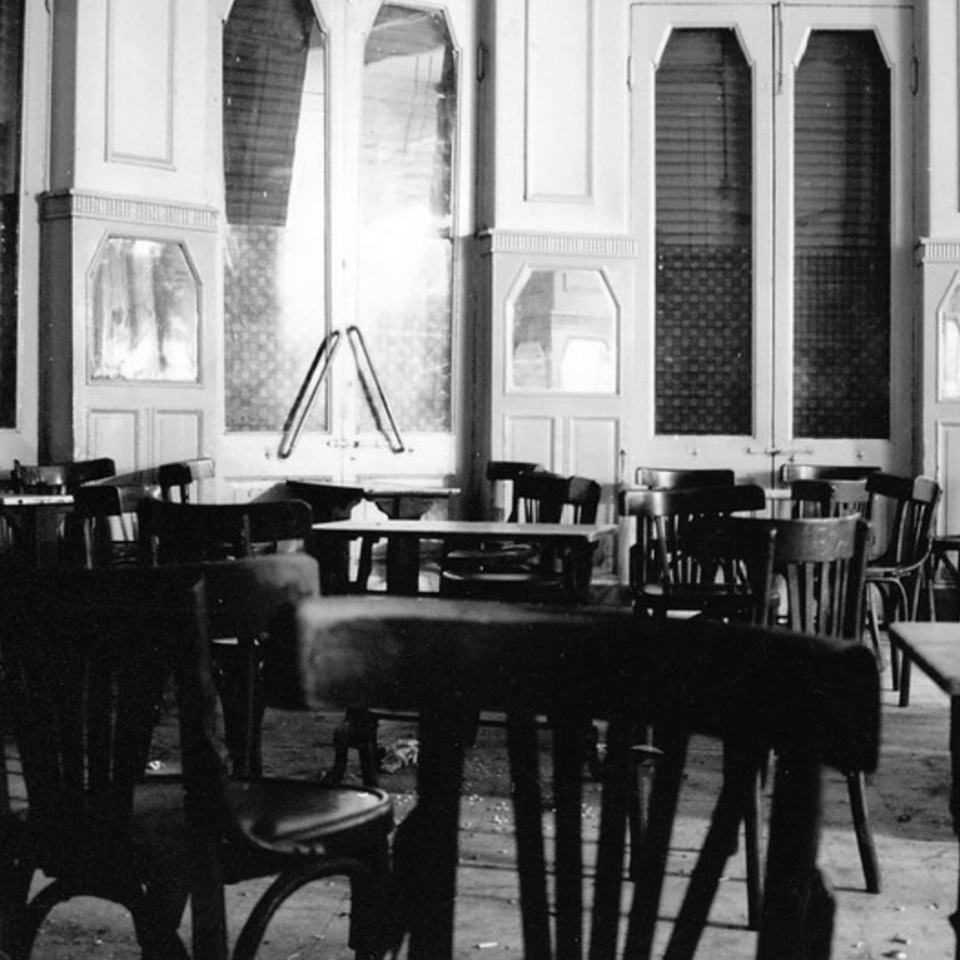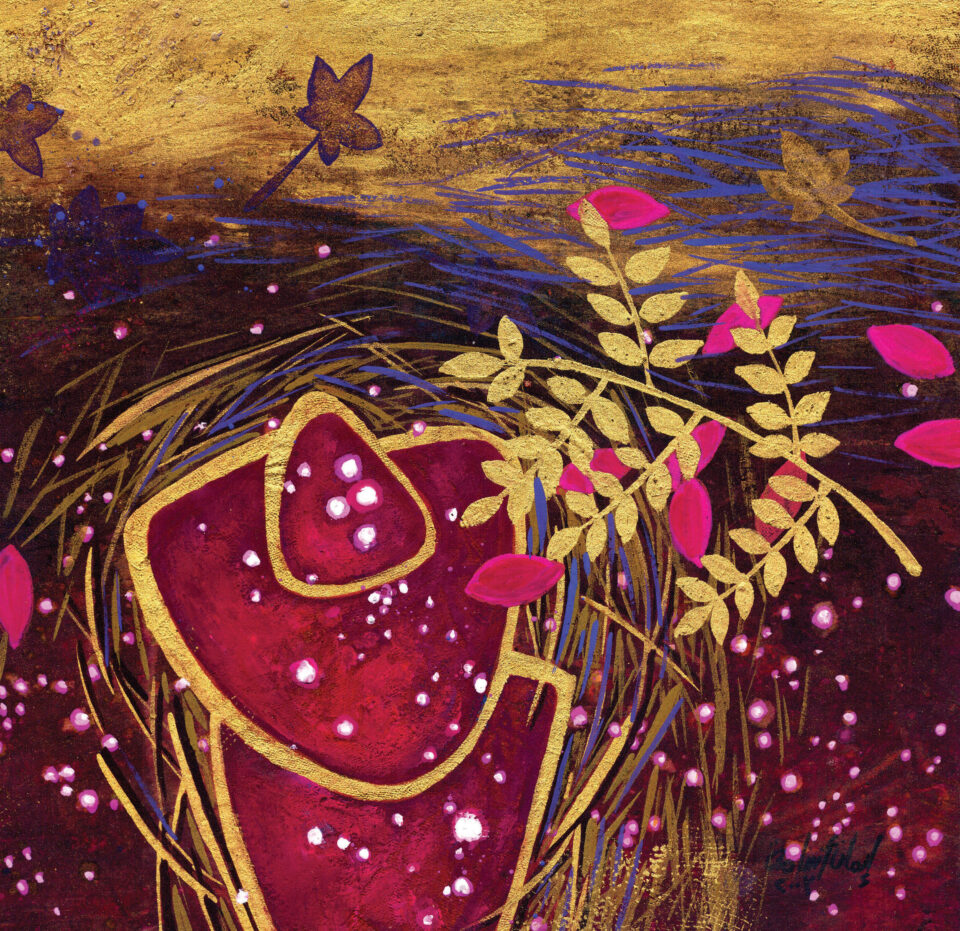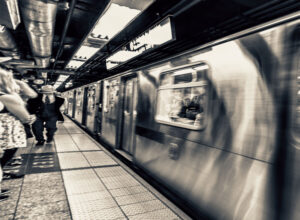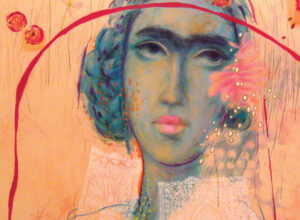Overbearing heat, crowded streets, and a bureaucratic circus…these are normal days in downtown Cairo. My wife and I had just finished working on a translation of our marriage certificate at one of the ministry offices. The woman in the office told us she needed half an hour to complete the review of our translation; we decided to go to a local café to wait. Now from what I have experienced in Cairo, the bustling streets and loud intersections are not true examples of Egyptian culture. These have become humorous stereotypes that Egyptians have coined and systematically fallen into themselves. My first full sentence in Arabic was, “Congratulations, you have a horn!” The side streets, off-beaten paths, and out-of-the-way corners seem like a refuge for those who want to slow down. These are the places one goes to find conversation, politics, culture, and this is where one finds a true cup of shai or coffee.
Tea is the preferred drink here. Coffee was introduced later and is enjoyed by the elderly. When drinking coffee here in Cairo, it is no surprise to have an Egyptian offer you Nescafé which is moderately enjoyable instant coffee. I, myself, became very used to it when introduced to it by my Egyptian wife while we were courting. As a teacher on the move, Nescafé seemed to be the better choice, it was easy to make and had a pleasing taste. Still, without a doubt, a poor comparison to the rich taste of the Turkish coffee I was also introduced to here. The preparation of Turkish coffee is an art all on its own. “The best part is chewing the grounds at the bottom of the cup…,” was a comment that I heard from my wife. So it can be safely said that if you are a coffee drinker or a tea drinker, you can find equal pleasure here in Cairo, and the best is always said to be found in downtown Cairo.
As we snuck out the side of the building, we met two armored trucks that looked more like tanks without the grandiose barrels mounted on the top. Two guards would keep watch on top of each, starring in opposite directions, backs to each other—symbolic, in a way. My first thoughts were more visual than practical. These soldiers seemed friendly yet kept a stern and professional air about them. “My boys!” my wife called them and she was very right to do so because, in reality, that is what they were, boys.
As we passed the soldiers to cross the busy street, we came upon one of those aforementioned alleys. Flanked on either side by cafés but quiet, it was like standing on the inside of a cave with the entrance blocked by a waterfall. To our right, rickety old tables and chairs, people just as old, conversations fluttering around a table or soaring across several tables. Some of the faces were women, tired, resting with a cup of tea while considering the next task to accomplish. Some faces, chiseled old men, worn as the walls, each one telling its own unique story. Naturally, not a single place to seat ourselves. As we hurried down the street, perpendicular to this little alley of refuge, we came across a shawarma store called “The Last Hour.” “Probably because they are open all day and night,” my wife replied. It was similar to many of the shawarma and kebab places you come across.
Shawarma is a staple in Egyptian street food. You see the racks rotating next to heat vents, keeping the meat cooked and warm; chicken or beef, occasionally lamb. Egyptians eat the sliced pieces mixed with vegetables, mainly tomatoes, peppers, and onions. Sometimes you can get it with assorted pickled items. My way to enjoy shawarma is wrapped in Syrian bread. Souri, which is Arabic for Syrian, is a very thin piece of bread that is similar to a wrap. They prepare the meat, wrap it, and then grill-press it. We decided to take it back to that alley to find a place to sit. We had spied one café with beautifully refrigerated cases with assorted ice creams and pastries. It was a very deceiving little cafe. We approached the man behind the refrigerated counters and asked if there was a place to sit, he pointed inside. What he didn’t tell us was that it was upstairs. Through the threshold, we met a colorful display adorning the walls of the entrance. The first floor was completely dedicated to baked goods and chocolates of all shapes, sizes, and flavors. There were very pleasant faces with equally pleasant smiles. He held up his hand, gesturing that we should go up the stairs. The café was fitted with beautifully modern wood panels, shelves, and cabinets, all matching. The wallpaper was antique-looking, similar to that of a fancy restaurant or hotel. Of course, like all staircases and floors here in Egypt, entirely marble. We began to ascend the stairs, expecting to see the tables on the second floor. We found the second floor completely dark and rather empty and drab compared to the full and colorful first floor. We found the third floor delightfully cool, covered in wood paneling with the air less acrid and more perfumed with the fragrances of coffee and tea. It was a little sanctuary, hidden in the walls of this old building.
Egypt is predominantly Islamic. That being painfully obvious to any educated individual, means a “dry” country. In some countries, the overindulgence of alcohol in pubs or watering holes has made these places home to many colorful individuals. Regulars become family; waiters and waitresses, barkeepers, and short-order cooks become accustomed to your regularly timed visits, your “usual” ready for the moment you arrive. I have found this familiarity in Egypt’s cafés.
My wife adopts them, like children, like a cat would adopt a doorstep; she’s acquainted with them, writes in them, and familiarizes herself with the people there. Egyptians enjoy the company of others; there are always lively discussions and the meeting of new people daily. As an expat, if you attempt to speak Arabic, you’ll have a number of excited Egyptians trying to speak to you as if you were born speaking Arabic. I adopted my own café only to find that months later I would lose it. Trianon became a home to me. On one occasion, during a holiday break, I spent a day smoking my pipe, drinking coffee, and writing. I wondered if this was what it felt like to be Hemmingway or Orwell, living their lives in foreign countries, drinking coffee or having a beer in a local café or pub while a revolution was taking place down the street. For a brief moment, I felt like a writer that day. Brief moments like that are what make life worth living. I made my way back to my villa when my fiancé called me and asked me to come out with her for a coffee.
When I returned, dressed differently, the waiter stared. He commented in Arabic to my fiancé and she looked at me with concern, “How much coffee have you had today?” I replied and she laughed, telling me he was afraid to serve me any more coffee.
I digress; back to that hurried intersection. My wife approached the manager and asked politely if we could enjoy the rest of our shawarma if we promised to purchase drinks. With reserve, he allowed us to take a table. She had ordered a cinnamon cappuccino while I, a ginger latte. The ginger blended beautifully with the coffee and added warmth with each sip. We ordered a variety of ice cream flavors, including a common flavor found in Egypt called mistika. We sat at a nearby table next to a window, overlooking busy Egyptians in their beautifully chaotic lives. The way I see Egypt through the eyes of my wife makes my experience—and new life—an incredibly rich one. We sat and stared out the window and at each other.
Without looking around the room, I made a passing remark to her to observe the people in the room. As she did I asked her to tell me one thing the people in the room had in common. “They are all in love,” she replied. Around the room there were couples, all engrossed in each other, smiling, laughing, enjoying each other’s company. Not un-similar to lifestyles we find comforting in America or France, perhaps even Italy. I wished that I could take my love to those places although I wouldn’t trade for them. Not for Cairo, not for where I am sitting, not for the company I keep, and not for the people in this room, in love, in each other, enjoying the simplicity of a cup of coffee and a pleasant conversation, at a café in downtown Cairo.








